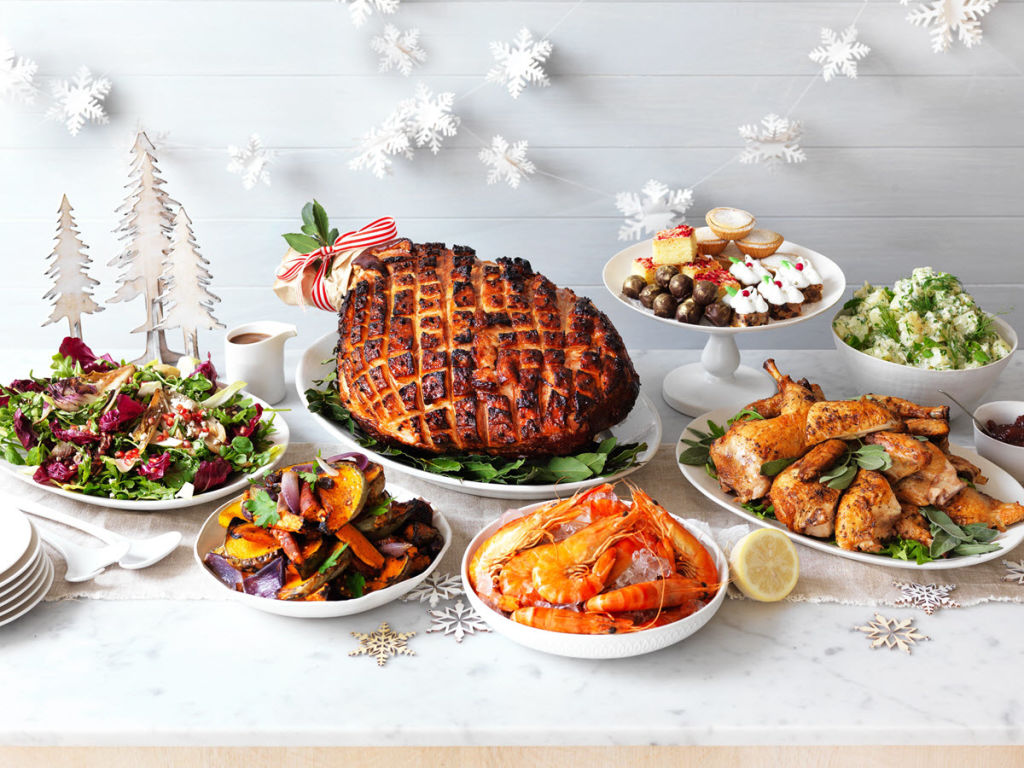
How COVID-19 crisis has changed the office Christmas party in 2020
The traditional office Christmas party is set to be a much smaller affair across the country this year – but possibly much more raucous.
Companies are ditching the big, en-masse corporate bash in favour of a post-COVID-19 pandemic series of much more intimate soirees for individual teams, or are catering for workers at home linked in by Zoom to a virtual party with colleagues.
“But we’re finding there’s a great mood of merriment this year, and people are feeling incredibly celebratory as they’re so grateful for the current situation,” said Jesse Tibert, the hotel manager of Como The Treasury Perth and its Wildflower Restaurant.
“They’re really relishing the opportunity to mark the time of year and, although some of the corporate offices are still on a part-time schedule, there’s incredible demand for smaller gatherings.”
With so much variation between regulations on hospitality events throughout the different states, the Christmas party scene is likely to vary dramatically around Australia.
In Melbourne, the city hardest hit by the pandemic, the most recent easing of restrictions has had a big impact.
“We’re suddenly flat-out with inquiries and we’re now almost booked out till the end of the year,” said Sophie Storen, director of Melbourne catering company Cookes Food. “It’s gone from absolutely nothing to the biggest pick-up of all time.
“It’s now pretty difficult to get enough staff to manage. But we’re not really doing the traditional cocktail party for 150 people this year; it’s gatherings for 40 or 50 as workforces have grown smaller too, and big corporates don’t want to be seen splashing out a lot of cash when we’ve been so close to the edge.”
In Sydney it is quieter than previous years as coronavirus-related rules mean that, for example, the Hilton Sydney’s restaurant Glass – an annual favourite for Christmas corporate gatherings – can now only admit 62 per cent of the usual number of customers. It’s also only open four days a week, and has to stagger arrivals.
“For group bookings, we can only have up to 30 people,” said Blair Weir, Hilton Sydney’s commercial director. “But we’ve had a flurry of last-minute bookings for the restaurant and our Marble Bar and Zeta Bar.
“People have been reluctant to commit to anything too far in advance but now everyone’s trying to book at the last minute. So while this Christmas won’t be as good as previous years, it’s going to be much better than we expected. We’re noticing that people are very excited to be able to get out too; there’s a noticeable air of happiness and enjoyment.”
Corporate Christmases are likely to be even more entertaining in Brisbane, the city not impacted so much by the pandemic. Independent hospitality company the Katarzyna Group, which owns and manages a number of venues and restaurants including Cloudland, EI8HT, Empire, Press Club and Birdees, reports they are flat out.
“We’re extraordinarily busy,” said spokesperson Chris Cossio. “I’ve never seen anything like it! I think people were a bit wary at first but when they saw hospitality venues were taking their safety seriously, they wanted to get out and about, and it’s been fantastic.
“I think they value their time out a bit more now, and are spending longer at their parties, and looking for quality food and beverage more.”
Another big limitation on Christmas parties, however, has been imposed from overseas.
Many staff of global brands have been told they can’t get together, in line with the rules of their head offices in countries in much worse positions. For workers of corporates headquartered in the US, UK or much of Europe, it’s now unlikely they’ll be able to gather before mid-2021.
“So it’s very quiet with a lot of our top-tier firms,” said Craig Fox, director of Brisbane caterers Wine & Dine. “And instead of groups of 200, 300 or 400, it’s now no more than 150, and lots of groups of 30, 40 and 50.
“We also have a number of virtual Christmas parties, where we package a three-course meal, Cryovaced, and sent with instructions for eating, which people eat at home while attending a Zoom party.”
That can be hard on people who usually look forward to letting their hair down at the usual Christmas party.
Alice Hidajat, for instance, who works for a financial services company in Sydney, is usually the life of every party, dressing in her Christmas green and reds, or entering into dress-up party themes with enthusiasm.
This year, however, as the party organiser for her firm, she’s planning a virtual gathering, which may involve a hamper sent to employees’ homes or a meal allowance.
“We have offices in Sydney, Melbourne and Perth and people used to fly to Sydney for the Christmas party,” Ms Hidajat said. “But now we may take a more conservative approach with a virtual gathering.
“But there are some advantages. Now everyone can be included, even those from our offices in Hong Kong and Manila, and they can dial in from our different time zones. The event will have things like quiz games and there are lots of different things you can do, like learning magic tricks and VR glasses. And people can still dress up if they want to!”
Restaurant & Catering Industry Association chief executive Wes Lambert said he was also seeing more hybrid events, where some people get together in head office, and others join in by Zoom or other online technologies.
“During the pandemic, a lot of businesses also pivoted to bespoke take-away and hampers and that’s continuing through the season too,” Mr Lambert said.
With many employees still working from home, some are reluctant to go to the office for a shindig, and often offices can now only accommodate 25 per cent of their workforce with enough social distancing anyway.
“But a lot of companies are still using gatherings in their offices, with morning teas or Christmas lunches, as a way of renewing their culture and the spirit of collaboration,” said Jonathan Rowley, managing director of Sydney caterers Vanilla Blue.
“We had cautious targets for this Christmas, but by December 4, we were at 100 per cent of our budget already for the month. It’s a lot busier than we thought, with small gatherings rather than big lavish parties.”










